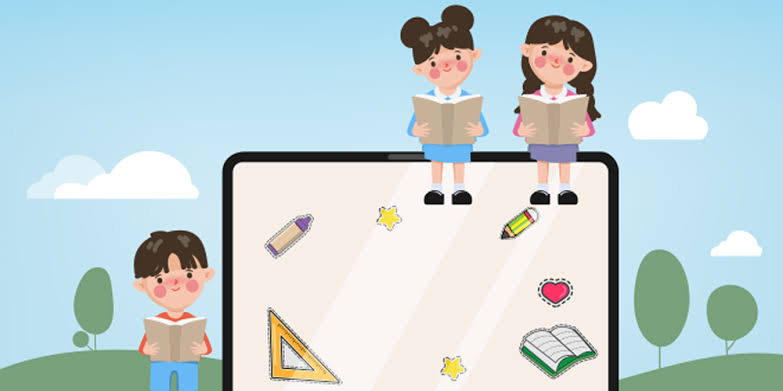How online resources are transforming education in Nigeria, enhancing access to learning materials, fostering interactive experiences, and promoting lifelong learning and skill development for students and educators alike.
In recent years the integration of online resources into Nigeria's education system has revolutionized learning. Offering unprecedented opportunities for students, educators and institutions alike. This discussion explores how online resources contribute to enhancing education in Nigeria. Addressing key benefits such as access to information interactive learning experiences, professional development for educators and overall educational quality improvement.
Introduction: The Role of Online Resources in Education
Online resources encompass wide array of digital tools and platforms that facilitate learning and information sharing through internet. In Nigeria where traditional educational infrastructure faces challenges such as inadequate funding, limited access to textbooks and teacher shortages. Online resources emerge as transformative solution to bridge these gaps. Enriching the learning experience for students across diverse socio-economic backgrounds.
Access to Diverse Learning Materials
One of primary advantages of online resources in Nigeria is access to diverse learning materials. Digital libraries and e-books provide students with access to wealth of information beyond traditional textbooks. This accessibility is particularly beneficial. In remote and underserved areas where physical libraries may be scarce. By democratizing access to knowledge online resources empower students to explore diverse subjects. They can conduct research and deepen their understanding of academic concepts.
Interactive and Engaging Learning Experiences
Online resources foster interactive and engaging learning experiences through multimedia content, virtual simulations, and collaborative tools. Educational websites, video lectures, and interactive quizzes cater to different learning styles, encouraging active participation and knowledge retention among students. In Nigeria, where classrooms often face overcrowding and limited interactive teaching methods, online resources supplement traditional instruction by providing personalized learning pathways and fostering self-paced learning opportunities.
Professional Development for Educators
Online resources play a crucial role in enhancing professional development opportunities for educators in Nigeria. Virtual workshops, webinars, and online courses enable teachers to expand their pedagogical knowledge, learn new instructional strategies, and integrate technology into classroom practices effectively. Continuous professional development through online resources equips educators with the skills and confidence to adapt to evolving educational trends, improve teaching methodologies, and meet the diverse needs of students in a digital age.
Cost-Effectiveness and Scalability
Online resources offer a cost-effective and scalable solution to educational challenges in Nigeria. Compared to traditional learning materials, digital resources such as e-books and online courses are often more affordable and accessible, reducing the financial burden on students and educational institutions. Furthermore, online platforms enable scalable distribution of educational content, reaching a broader audience of learners across different regions and socio-economic backgrounds without geographical limitations.
Promoting Lifelong Learning and Skill Development
Beyond formal education, online resources promote lifelong learning and continuous skill development among learners of all ages. Adult learners, working professionals, and individuals seeking career advancement can access online courses, certifications, and skill-building programs to acquire new competencies and stay competitive in the job market. In Nigeria, where youth unemployment remains a pressing issue, digital skills acquired through online resources empower individuals to pursue entrepreneurial ventures, contribute to economic growth, and drive innovation.
Improving Educational Quality and Accessibility
Online resources contribute to improving educational quality and accessibility by fostering innovation, creativity, and critical thinking among students. Virtual laboratories, educational apps, and online tutoring platforms supplement traditional classroom instruction, offering practical learning experiences and personalized support to students. Moreover, online resources accommodate diverse learning needs and disabilities, promoting inclusive education and ensuring equitable access to educational opportunities for all learners in Nigeria.
Addressing Challenges and Building Resilience
Despite the benefits, integrating online resources into Nigeria's education system faces challenges such as digital infrastructure limitations, internet connectivity issues, and varying levels of digital literacy among educators and students. Addressing these challenges requires collaborative efforts from government agencies, educational institutions, private sectors, and international partners to invest in digital infrastructure, expand broadband access, and provide technical support and training to stakeholders.
Harnessing the Potential of Online Resources
Harnessing the full potential of online resources in Nigeria's education system requires strategic planning, policy support, and sustainable investments in digital technologies. Government initiatives, partnerships with technology firms, and community engagement are essential for advancing digital literacy, promoting innovation, and ensuring that online resources effectively complement traditional teaching methods to enhance overall educational outcomes.
Conclusion: Embracing a Digital Future in Education
In conclusion, online resources play a pivotal role in enhancing education in Nigeria by expanding access to learning materials, fostering interactive learning experiences, supporting professional development for educators, and promoting lifelong learning and skill development. By leveraging digital technologies and embracing a digital-first approach, Nigeria can overcome educational challenges, bridge socio-economic gaps, and empower learners to thrive in an increasingly interconnected and competitive global environment.
Online resources not only supplement traditional education but also empower students and educators to embrace innovation, creativity, and lifelong learning habits necessary for personal growth and national development. As Nigeria continues to embrace digital transformation in education, investing in online resources and digital literacy initiatives remains critical for building a knowledge-driven society capable of seizing opportunities and driving sustainable progress in the 21st century.
